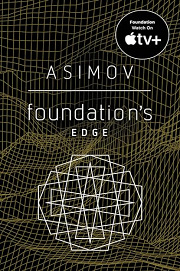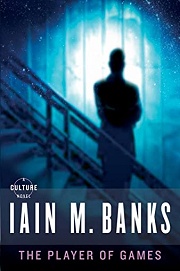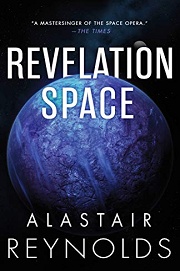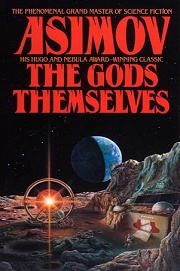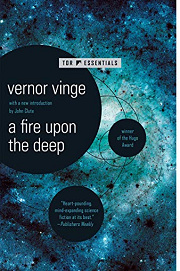Share your thoughts in a quick Shelf Talk!
Foundation's Edge by Isaac Asimov
Rumors of hidden powers ignite a galaxy-spanning chase—one that could reshape the delicate balance keeping civilization afloat. In Foundation's Edge, rival seekers race for answers buried behind politics, secrecy, and the pull of distant stars, blending mystery with classic sense-of-wonder.
Have you read this book? Share what you liked (or didn’t), and we’ll use your answers to recommend your next favorite read!
Love Foundation's Edge but not sure what to read next?
These picks are popular with readers who enjoyed this book. Complete a quick Shelf Talk to get recommendations made just for you! Warning: possible spoilers for Foundation's Edge below.
In Foundation's Edge, did you enjoy ...
... ruthless, chess-like power plays between interstellar factions and leaders?
The Player Of Games by Iain Banks
If Mayor Branno’s quiet manipulation of Trevize, the Second Foundation’s internal jockeying (Gendibal vs. Delarmi), and the shadow war to steer the Seldon Plan hooked you, you’ll love how The Player of Games turns galactic politics into a deadly contest. Like the brinkmanship between Terminus and Trantor, Banks pits a brilliant operative against an empire where a game decides power—every move has geopolitical consequences, and the stakes are civilization-level.
... a galaxy-spanning hunt for a buried truth that rewrites history?
Revelation Space by Alastair Reynolds
You followed Trevize and Pelorat’s trail of myths toward Earth, only to uncover Gaia and the possibility of Galaxia. In Revelation Space, Dan Sylveste’s obsessive investigation into the vanished Amarantin echoes that same relentless pursuit—clues scattered across dead worlds, archaeological riddles, and a final revelation that forces a rethinking of humanity’s place in the cosmos, much like Trevize’s universe-shaping choice.
... big-idea debates about consciousness, destiny, and the fate of civilizations?
The Gods Themselves by Isaac Asimov
If Trevize weighing free will against the safety of Galaxia, Bliss’s defense of Gaia’s group consciousness, and the ethical calculus behind the Seldon Plan captivated you, The Gods Themselves offers another Asimovian crucible of ideas. It probes parallel universes, collective entities, and the cost of progress—raising the same kind of thorny questions that drive Trevize’s final, civilization-defining decision.
... sweeping, high-stakes space opera with exotic civilizations and transformative revelations?
A Fire Upon the Deep by Vernor Vinge
From Trevize’s jaunt across worlds to the revelation of Gaia, you enjoyed that feeling of the galaxy opening wider with every stop. A Fire Upon the Deep amplifies that sense of scale—zones of thought, ancient superintelligences, and cultures as strange and vivid as Gaia’s group mind. Its escalating, civilization-scale stakes mirror Trevize’s discovery that a single choice can pivot the fate of the galaxy.
... social science driving the plot—anthropology, psychology, and ethics shaping first contact?
Speaker for the Dead by Orson Scott Card
If psychohistory, Trevize’s intuition-as-policy, and Bliss/Gaia’s social consciousness intrigued you, Speaker for the Dead centers the same soft-science lens. Ender arrives to "speak" uncomfortable truths, unraveling an alien culture’s motives much as Trevize and Pelorat untangle human myths; the resolution hinges on empathy and ethical understanding, not tech—echoing the way Trevize’s moral reasoning steers the future.
Unlock your personalized book recommendations! Just take a quick Shelf Talk for Foundation's Edge by Isaac Asimov. It’s only a few questions and takes less than a minute.
